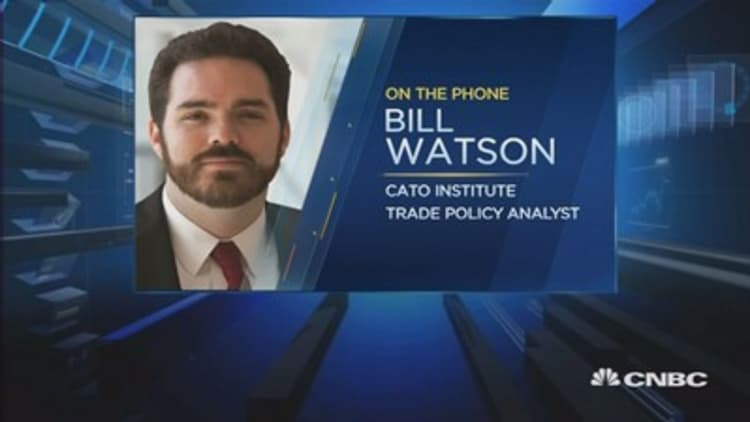
The freshly inked Trans-Pacific Partnership (TPP) – the biggest trade pact in two decades encompassing 40 percent of the world economy – may be hailed as transformational, but it will take many years before the economic benefits are actually felt, say analysts.
After five years of talks, a dozen countries across the Pacific Basin - Australia, Brunei, Canada, Chile, Japan, Malaysia, Mexico, New Zealand, Peru, Singapore, Vietnam – on Monday clinched a landmark free-trade agreement that will reportedly reduce or eliminate tariffs on almost 18,000 categories of goods.
It is the largest trade deal the U.S. has negotiated since North American Free Trade Agreement (NAFTA) and the Uruguay Round were signed over twenty years ago.
"For a start, there are several hurdles to overcome before it is implemented," says Andrew Kenningham, senior global economist at Capital Economics.
First off, the deal must be ratified by each country's legislature - a sticky process that could take several months.
In the U.S., which is leading the initiative, many of President Barack Obama's fellow democrat legislators, as well as labor groups, fear the TPP will cost manufacturing jobs and weaken environmental laws, while some Republicans oppose provisions to block tobacco companies from suing governments over anti-smoking measures.
"Democrats are opposed, as are leading Republican presidential candidates, including Donald Trump. With presidential elections due next year, the TPP may well get blocked in Congress," said Kenningham.
Second, tariffs are due to be lowered and market access increased only gradually, Kenningham said.
"Even after it is implemented, the full benefits will not be felt for many more years."
Evan Lucas, market strategist at IG mirrored the view that the TPP won't be a game changer for the global economy in the near-term.
"The Trans-Pacific Partnership is interesting from a political point of view, but from a market's perspective it appears insignificant. Considering the outcry from the Republican Party and even some Democrats, the deal is unlikely to see daylight for years, if ever," Lucas said.
Having said that, the longer-term significance of the deal shouldn't be downplayed, if it gets passed by member countries' parliaments, says Lucas.
Read MoreWhat is the Trans-Pacific Partnership and how does it work?
"Assuming it is implemented, the effect on most Pacific Rim nations will be GDP positive and therefore the effect on global growth will also be positively affected. It may just take several years. Soft commodities, intellectual property and exportable services are the big winners," he said.
The TPP agreement comes at a time of heightened uncertainty for the global economy, with both the world's second and third largest economies – China and Japan - on shaky ground.
Looking at the immediate benefits of the deal, Doug Lippoldt, senior trade economist at HSBC says "an accord among countries representing a large swath of the global economy sends a positive signal worldwide."
"The substantial, co-ordinated policy initiative represents a meaningful step towards much-needed structural reforms and demonstrates the feasibility of such initiatives in the current environment," he said.
Additionally, while the accord will roll out over a period of years, Lippoldt highlights that it will establish an agenda in favor of liberalization over the medium to long term.
"It will help shape expectations and may lead to further reforms on additional issues or in additional economies," he said.
-Reuters contributed to this report


